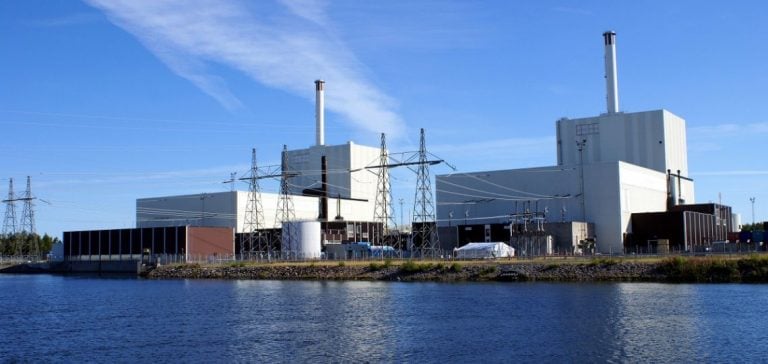Ebba Busch, Sweden’s Minister for Energy and Deputy Prime Minister, urges European institutions to stop obstructing the development of nuclear power.
She points out that each member state of the European Union (EU) retains the right to choose its own energy solutions, and that the majority of EU countries, as well as the European Council, support nuclear power.
At the“Roadmaps to New Nuclear” conference in Paris, organized by the Organisation for Economic Co-operation and Development (OECD), Busch stressed the importance of the EU not imposing blockages, particularly through binding regulations.
The nuclear sector is seen as essential to meeting energy and decarbonization challenges, particularly in a context where several countries, including Sweden, are aiming to reduce their dependence on fossil fuels.
In 2023, under the Swedish presidency of the EU, the European Nuclear Alliance was created, bringing together 12 nuclear-friendly countries.
This initiative aims to strengthen cooperation between these nations to support development and innovation in this sector.
Necessary financial support for European nuclear competitiveness
Busch insists on the need for stronger state support for the European nuclear industry, pointing out that powers such as the USA and China have already invested heavily in this field.
Without greater public support, Europe risks losing its competitiveness in the face of these countries, which massively support their energy sector, particularly nuclear power.
The Minister also points out that the nuclear industry plays a key role in the decarbonization of economies and energy independence.
She therefore calls on Member States to mobilize to support investment in new production capacity.
Financial support for the nuclear industry in Europe is now a crucial issue, not only to remain competitive on a global scale, but also to meet the energy and climate objectives set by the EU.
The European Commission, though divided on the issue, is increasingly called upon to provide a regulatory framework to facilitate such financing.
Sweden’s ambitious nuclear plans
Sweden itself has clear plans.
The country plans to add 2.5 GW of new nuclear capacity by 2035, as part of a wider objective to double its electricity production by 2045.
This new capacity could take the form of large units or Small Modular Reactors (SMR), a promising modular reactor technology that enables smaller plants to be built with lower costs and greater flexibility.
Busch also points out that Sweden is targeting several crucial aspects to unlock the expansion of nuclear power, including the simplification of regulations that are currently holding back many projects.
Another major issue is the management of nuclear waste, particularly highly radioactive waste, for which safe storage solutions are essential.
These technical and logistical challenges are a brake on the achievement of nuclear objectives, but efforts are being made to overcome them.
Challenges and opportunities for the European nuclear industry
The development of nuclear power in Europe remains divided, however.
Countries such as Austria, Germany, Ireland and Luxembourg continue to oppose this energy source, citing concerns about safety and the environmental impact of radioactive waste treatment.
This division between member states complicates the implementation of a coherent European nuclear strategy.
However, the European Nuclear Alliance represents a significant effort to standardize approaches and encourage the exchange of expertise and technologies between nuclear-friendly countries.
The European nuclear industry also sees SMRs as an opportunity to revitalize the sector.
These small-scale reactors offer advantages in terms of cost, safety and modularity, enabling faster integration into national energy mixes.
Their development is particularly closely monitored in Sweden, where current projects are part of a long-term strategy to maintain energy independence while meeting decarbonization targets.
Outlook for nuclear power in Europe
State support for nuclear power, whether through direct subsidies, public-private partnerships or tax incentives, is now seen as a sine qua non for ensuring Europe’s competitiveness in this field.
Sweden, through its active advocacy of nuclear power, is trying to influence the decisions of the European Commission and other member states to foster a regulatory and financial environment conducive to the sector’s expansion.
Europe also needs to accelerate research and development, particularly around new-generation technologies such as SMRs and fourth-generation reactors.
This includes efforts to improve waste management and guarantee plant safety, points often criticized by opponents of nuclear power.
The future of nuclear power in Europe will therefore be played out on both the political and economic fronts, with the stakes going far beyond the borders of individual member states and affecting Europe’s place in the global energy transition.





















